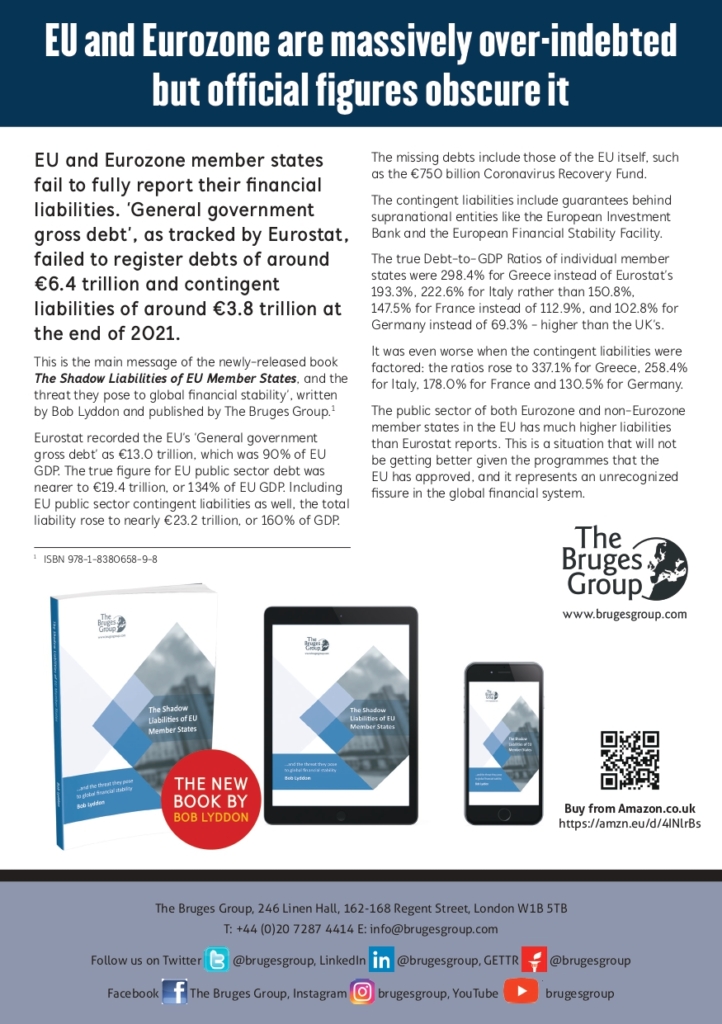Published on 5th September 2023
The Campaign for an Independent Britain published this piece that the UK’s debt is not larger than the EU’s as the Daily Telegraph had claimed, if the EU member states’ shadow debts and contingent liabilities are factored in:
https://cibuk.org/eurozone-debt-dwarfs-that-of-the-uk/
My figures on the EU are drawfrom my book ‘The shadow liabilities of EU Member States, and the threat they pose to global financial stability’. This is not to excuse UK profligacy in allowing its debt to come near to 100% of its GDP, but to point out that the EU’s debt-to-GDP ratio would come out much higher, if accounting legerdemain was not used.
‘General government gross debt’, as tracked by Eurostat, is the figure used to calculate member states’ debt-to-GDP ratio, but it failed to register debts of around €6.4 trillion and contingent liabilities of around €3.8 trillion at the end of 2021.
Eurostat recorded the EU’s ‘General government gross debt’ as €13.0 trillion, which was 90% of EU GDP. The true figure for EU public sector debt was nearer to €19.4 trillion, or 134% of EU GDP. Including EU public sector contingent liabilities as well, the total liability rose to nearly €23.2 trillion, or 160% of GDP.
The missing debts include those of the EU itself, such as the €750 billion Coronavirus Recovery Fund.
The contingent liabilities include guarantees behind supranational entities like the European Investment Bank and the European Financial Stability Facility.
The true Debt-to-GDP Ratios of individual member states were 298.4% for Greece instead of Eurostat’s 193.3%, 222.6% for Italy rather than 150.8%, 147.5% for France instead of 112.9%, and 102.8% for Germany instead of 69.3% – higher than the UK’s.
It was even worse when the contingent liabilities were factored: the ratios rose to 337.1% for Greece, 258.4% for Italy, 178.0% for France and 130.5% for Germany.
The public sector of both Eurozone and non-Eurozone member states in the EU has much higher liabilities than Eurostat reports. This is a situation that will not be getting better given the programmes that the EU has approved, and it represents an unrecognized fissure in the global financial system.

